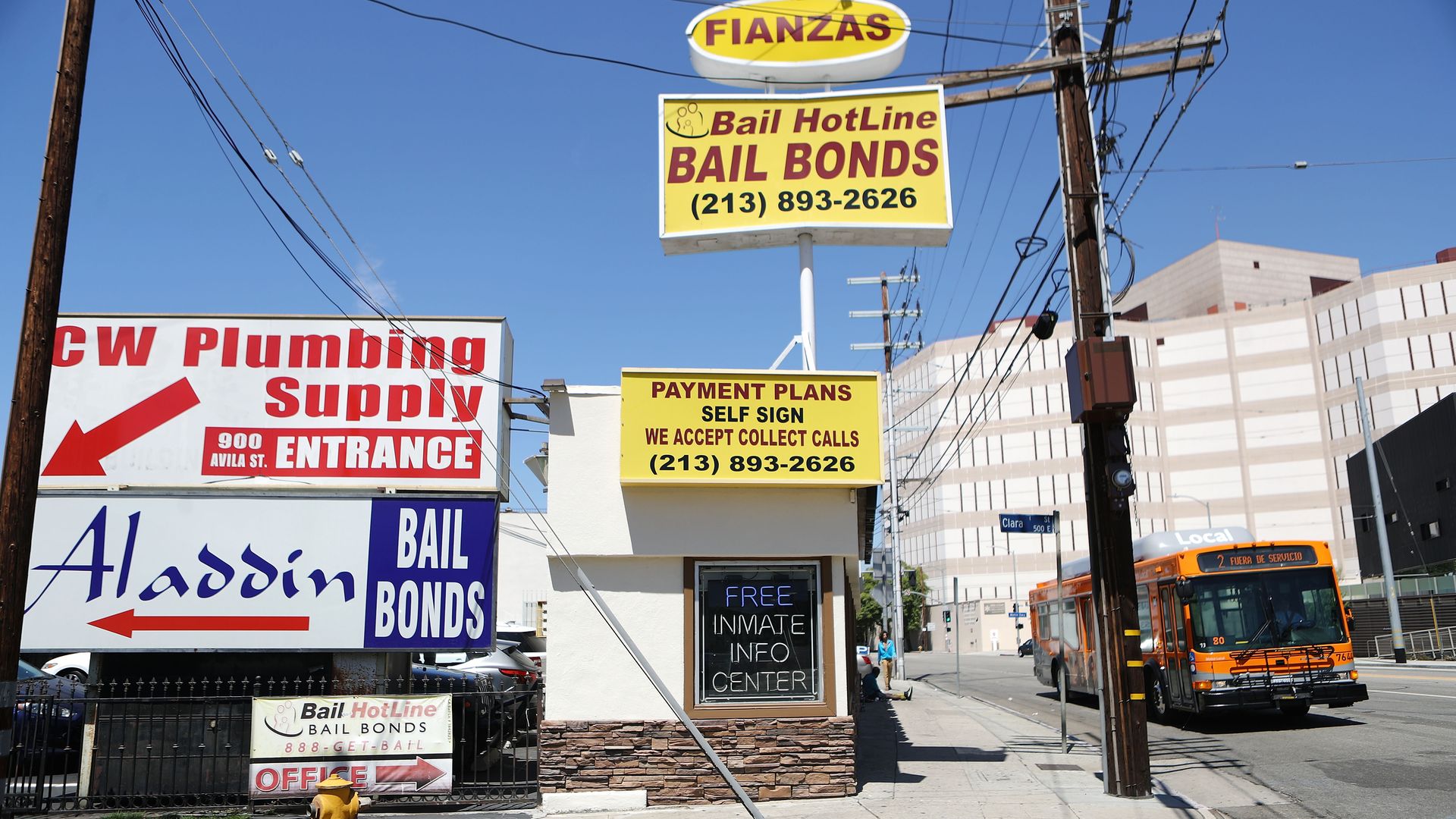Just How Bond Bonds Assist You Safeguard a Swift Release
Bond bonds function as a vital device for people navigating the intricacies of the criminal justice system, offering a pathway to restore freedom promptly following an apprehension. By engaging a bondsman and paying a fraction of the total bail amount, defendants can address both lawful commitments and personal duties without the prompt burden of complete repayment. This process not just assists to maintain one's public photo however likewise assists in a smoother change during a difficult time. However, the ins and outs of this system often punctual concerns-- what are the specific advantages, and exactly how do they really influence the general experience?
Understanding Bond Bonds
Bond bonds act as an essential mechanism in the lawful system, offering people with a way to protect their launch from custody while waiting for trial. This monetary plan enables offenders to post bail, which is a collection quantity identified by the court, ensuring their appearance at future court days. When an offender can not afford the complete bond quantity, they may look for assistance from a bail bond business, which typically bills a cost, often around 10% of the complete bail quantity.
The bail bond functions as an assurance to the court that the offender will follow all legal commitments. If the defendant stops working to show up in court, the bail bond company is in charge of paying the complete bond quantity. This danger incentivizes the company to guarantee that the offender reveals up for their scheduled hearings.
It is essential to identify that bail bonds do not cover various other expenses or lawful fees connected with a test. Individuals must be well-informed regarding their obligations and civil liberties when entering right into a bail bond agreement.
The Function of a Bail Bondsman
Just how does a bail bondsman help with the launch of defendants from protection? A bondsman, likewise referred to as a bond bonds agent, plays a vital role in the bail process by supplying the economic resources required to protect an offender's release from jail - bail bonds licking county. When a defendant can not afford the full bond amount established by the court, the bondsman action in to cover this cost, commonly billing a non-refundable costs, typically a percent of the total bail
Once the costs is paid, the bondsman protects the offender's launch by signing a surety bond with the court. This bond guarantees that the defendant will appear for all arranged court hearings. If the accused stops working to show up, the bail bondsman is accountable for paying the full bail total up to the court, which incentivizes the bail bondsman to make certain the defendant complies with their court responsibilities.
In addition, bail bondsmans typically examine the danger connected with each situation, evaluating the offender's history, connections to the neighborhood, and probability of appearing in court (bail bonds licking county). This risk assessment notifies the terms of the bond and might consist of security demands, better ensuring the bondsman's financial investment is safeguarded throughout the legal procedure
Advantages of Making Use Of Bail Bonds
Using bond bonds offers several benefits for accuseds encountering legal challenges. Bond bonds allow accuseds to pay a fraction of the complete bail amount, generally around my link 10%, therefore alleviating the immediate monetary worry.

In addition, collaborating with a bondsman provides access to specialist support via the complex legal landscape. Bondsmen are educated about the lawful system and can use beneficial guidance, making sure accuseds recognize their duties and civil liberties. This expert assistance can be vital in safeguarding a desirable outcome in court.
Finally, using a bail bond can assist keep an offender's public image and employment condition, which can be adversely influenced by extended detention. On the whole, the advantages of bail bonds extend past economic factors to consider, promoting stability throughout a difficult time.
The Bond Process Explained
Recognizing the bond procedure is necessary for any individual navigating the intricacies of the lawful system. The bond process starts after a person is apprehended and brought before a court. During the initial look, the judge identifies whether bond is appropriate and sets the quantity based upon the intensity of the fees, the accused's criminal history, and trip danger.
When bond is set, the defendant has a number of choices for safeguarding their launch. In the accused, this situation or a co-signer pays a non-refundable charge, commonly 10% of the total bond amount, to the bail bondsman, who after that covers the full bond.
Upon settlement, the bondsman data necessary documents, and the offender is released from safekeeping. It is important to understand the duties involved, consisting of going to all court hearings and abiding with any kind of problems established by the judge, as failure to do so can lead to a forfeit of the bond and additional lawful effects.
Usual Misconceptions Concerning Bail

Another common misunderstanding is that bail amounts are generally established and stable. In truth, judges have discernment in identifying bail amounts based upon various factors, including the nature of the crime, the defendant's criminal history, and trip risk. In addition, lots of think that just rich individuals can manage bond, ignoring the presence of bail bonds, which provide an even more accessible financial remedy.
Some additionally assume that bail is a penalty, not understanding that it serves as a mechanism to ensure offenders stand for their court dates while preserving their freedom throughout the legal process. Many individuals are unaware that bond is my sources not a right; it can be rejected under certain situations, specifically in significant criminal offenses or repeat offenses. Clarity on these misconceptions is essential for educated decisions concerning bond and the general legal process
Conclusion

When an offender can not pay for the complete bond quantity, they may look for aid from a bail bond business, which typically charges a charge, frequently around 10% of the overall bond amount.
If the accused stops working to appear in court, the bail bond firm is responsible for paying the full bond amount. A bail bondsman, also understood as a bail bonds agent, plays an important function in the bail process by supplying the monetary sources necessary to safeguard a defendant's launch from prison. Bail bonds allow defendants to pay a portion of the total bond quantity, typically around 10%, consequently reducing the prompt monetary concern.
In this case, a co-signer or the offender pays a non-refundable charge, generally 10% of the overall bond amount, to the bail bondsman, that after that covers the complete bond.